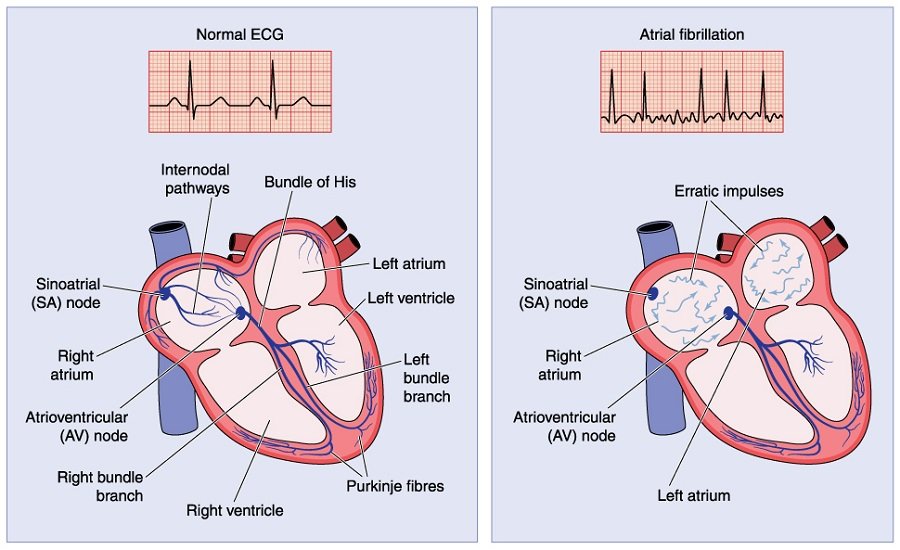Atrial Fibrillation: The Basics
Atrial fibrillation (AFib) is the most common type of cardiac arrhythmia and affects an estimated 2-6 million Americans. In Afib, the top chambers of the heart beat quickly and irregularly and it is random as to which heartbeat from the atria will signal the ventricles to beat. Normally, the heart beats in a regular rhythm such that each time the top chambers of the heart (the atria) beat, the bottom chambers (the ventricles) beat.

Afib can be a problem for a number of reasons. First, when the heart is beating quickly and irregularly, blood doesn’t move through the heart normally. In fact, blood can pool and form clots in the heart. There is a risk that these clots can travel out of the heart and cause stroke and other problems. Given this, patients with Afib are often recommended to start a blood thinner. You and your doctor will need to discuss the pros and cons of starting a blood thinner given your individual risk factors for stroke. Second, atrial fibrillation tends to cause the heart to beat quickly. This is a problem as it shortens the time the heart has to fill with blood and therefore the amount of blood that can be pumped to the rest of the body. It can also cause the heart to fatigue leading to heart failure. Given this, treatments for atrial fibrillation focus on both slowing the heart rate down and trying to get the heart back into normal sinus rhythm. Again, your doctor will advise as to the best strategy for your individual case.
Risk factors for Afib
- Advancing age
- High blood pressure
- Diabetes
- Heart failure
- Sleep apnea
- Obesity
- Excessive alcohol use
- Smoking
- Lung disease
- Hyperthyroidism
- Coronary artery disease
- Valvular heart disease
Symptoms of Afib
- Some people have no symptoms at all
- Heart palpitations / irregular heart beat
- Shortness of breath
- Lightheadedness / dizziness
- Chest pain
- Fatigue / weakness
